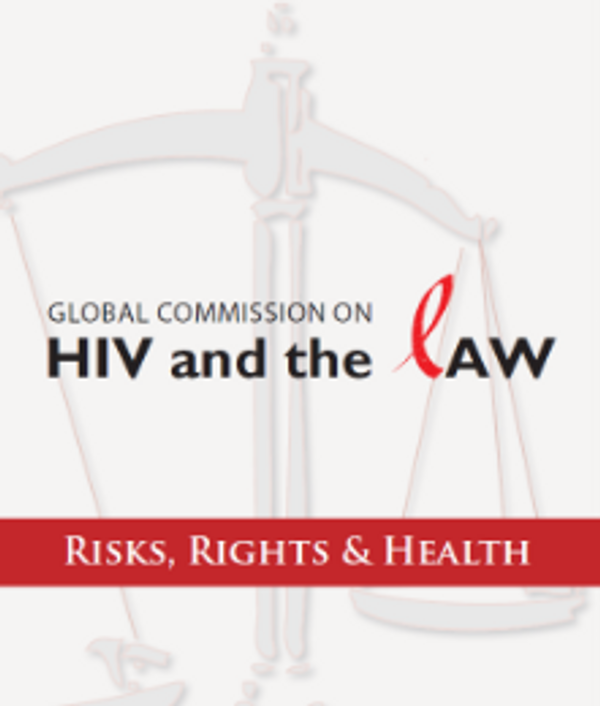The Global Commission on HIV and the Law: Taking the Commission's recommendations forward
The invitation to participate in the e-discussion on 'The Global Commission on HIV and the Law: Taking the Commission's Recommendations Forward' is open. The discussion, running from 27 June to 25 July, is open to the public and accessible by clicking here. We will be cross-posting content regularly from the discussion on our mailing list over the next month.
We cordially invite you to participate in an e-discussion, “The Global Commission on HIV and the Law: Taking the Commission’s Recommendations Forward", from 27 June to 25 July.
The e-discussion aims to analyze experiences in implementing the Commission’s recommendations, as well as identify challenges, opportunities, good practices and lessons learned in addressing human rights and legal frameworks in the context of HIV.
The Global Commission on HIV and the Law, convened by UNDP and chaired by Fernando Henrique Cardoso (former president of Brazil), examined the relationship between HIV, human rights and legal environments. Its final report, released in July 2012, presents a coherent and compelling evidence base that laws that protect human rights strengthen AIDS responses. The report provides important recommendations to improve public health and social justice, with a focus on addressing: discrimination; criminalization of HIV transmission; HIV among key populations, women and children; and intellectual property law. Since 2012, some 80 countries have initiated follow-up action.
To further implementation of the Commission’s recommendations, UNDP Administrator Helen Clark and UNAIDS Executive Director Michel Sidibé recently sent a joint letter to UN Resident Coordinators requesting their leadership and support to advance efforts on HIV and the law, including by:
- Encouraging UN Country Teams to develop and implement strategies to support national counterparts in addressing the Commission’s findings and recommendations; and
- Encouraging multi-stakeholder discussion to take forward the recommendations of the Commission, including through national dialogue, legal review and reform, sensitization of judiciary, parliamentarians and law enforcement officials, and access to justice programming.
The e-discussion will be used to inform and enhance future support to implementation of the Commission’s recommendations and will be framed around the following questions:
- The Commission issued recommendations in the following areas: discrimination; criminalization of HIV transmission, exposure, or non-disclosure; key populations (people who use drugs, sex workers, men who have sex with men, transgender persons, prisoners, and migrants); women; children and youth; and intellectual property law and access to treatment.
What actions have been taken in your country to follow-up on the findings and recommendations of the Commission or to promote an enabling legal environment for AIDS responses? What good practices or lessons have emerged from these activities?
- Building a culture of respect for human rights and consequently strengthening legal environments can be complex and challenging, particularly in the context of issues that are perceived as controversial, such as criminalization of certain behaviours or populations at greater risk of HIV.
What have been the most difficult issues to address in supporting implementation of the Commission’s recommendations? What approaches have you used to deal with these challenges?
Phase II: Looking ahead: Strategically taking the Commission’s recommendations forward (11-25 July)
- Discussions on the post 2015 development agenda have highlighted the need for countries to continue efforts to meet their MDG targets. They have also called for greater attention to advancing human rights, reaching the most excluded, and finding integrated solutions for development challenges.
In the context of an evolving development framework, what are the opportunities and challenges for maintaining attention to rights-based approaches to HIV and health? What strategies should be promoted to advance effective HIV and health responses?
- The Commission’s recommendations are primarily aimed at governments, civil society actors, the private sector and the UN.
What are examples of innovative or non-traditional partnerships that can be used to strategically advance human-rights based responses to HIV? How can partnerships be effectively initiated and comparative advantages of different organizations leveraged, to support implementation of the Commission’s recommendations?
The first phase of the discussion will be moderated by Suki Beavers, Policy Advisor and Cluster Leader for Democratic Governance, Crisis Prevention and Recovery and Gender Based Violence with the UNDP Gender Team in the Bureau for Development Policy, UNDP, and by Tracy Robinson, former member of the Commission’s Technical Advisory Group and Rapporteur on the Rights of Women at the Organization of American States.
The second phase of the discussion will be moderated by Vivek Divan, Policy Specialist Key Populations and Access to Justice, HIV, Health and Development Group, UNDP, and by Michaela Clayton, Director of the AIDS & Rights Alliance for Southern Africa and Chairperson of the UNAIDS Human Rights Reference Group.
Some practical considerations:
- You can participate in the discussion online by clicking here.
- You don’t need to log in to follow the discussion, however when you want to contribute you are requested to log-in (for people with Teamworks accounts) or to sign up for Teamworks. Kindly note that this is a public platform and that your contributions are visible to the public.
- You may also contribute by sending your submission to hivlawdiscussion@unteamworks.org. Your response will be disseminated on the networks that are cross-posting the discussion.
- We welcome your contributions in English, French and Spanish. The discussion platform offers automatic (unofficial) translations of discussion contributions - please use the Google Translate button.
Click here to know more about how to participate on the e-discussión.
Keep up-to-date with drug policy developments by subscribing to the IDPC Monthly Alert.
Regions
Related Profiles
- Global Commission on HIV and the Law
